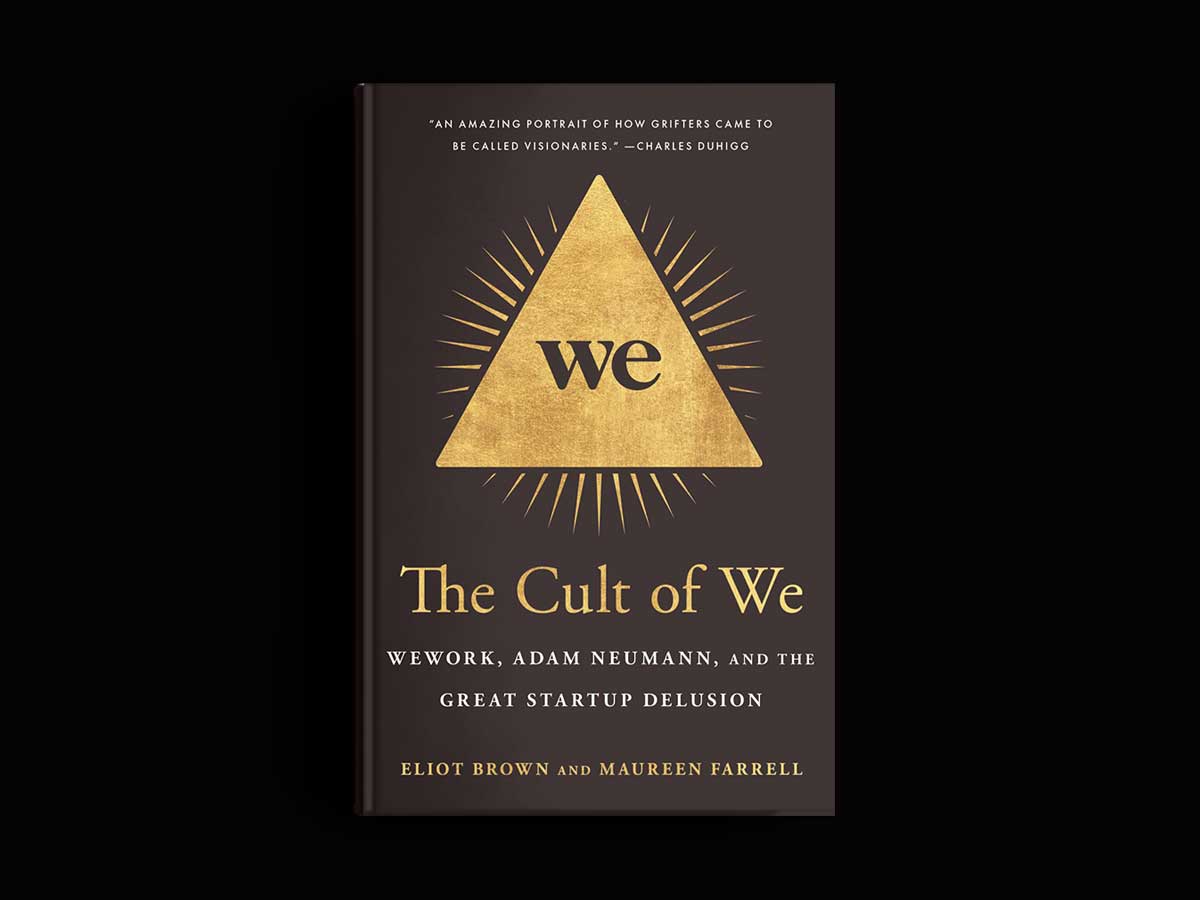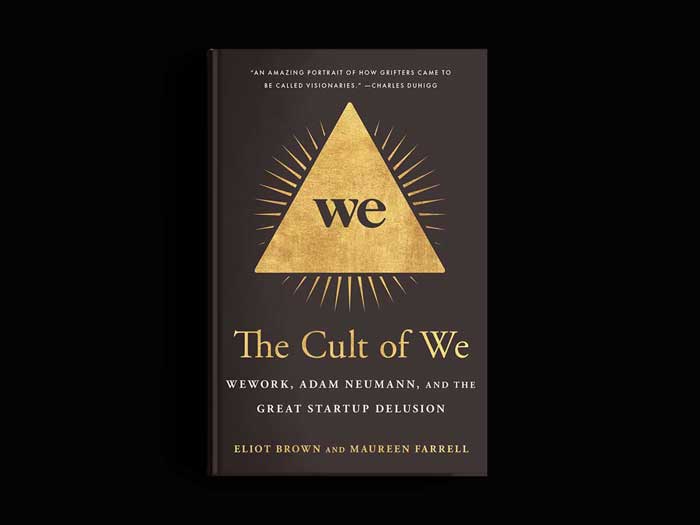
The rise and fall of WeWork
 The Cult of We: WeWork, Adam Neumann, and the Great Startup Delusion focuses on the company’s charismatic founder
The Cult of We: WeWork, Adam Neumann, and the Great Startup Delusion focuses on the company’s charismatic founder
It’s hard to imagine a more target-rich environment for business writers than the extraordinary rise and fall of WeWork, the commercial real estate company that, in just a decade, went from humble origins to a US$40 billion valuation to a smoking ruin. The biggest bull’s-eye is on the back of the charismatic founder, Adam Neumann, who declared that someday, possibly after he became the world’s first trillionaire, a Middle East peace treaty would be signed on a WeWork site. In their book, The Cult of We: WeWork, Adam Neumann, and the Great Startup Delusion, writers Eliot Brown and Maureen Farrell paint an unflattering picture of Neumann and, to a scarcely lesser degree, his wife Rebekah Paltrow (a cousin to actor Gwenyth), who are presented as the embodiments of F. Scott Fitzgerald’s “careless people,” The Great Gatsby characters who “smashed up things and creatures and then retreated back into their money…and let other people clean up the mess they had made.”
But what makes their book such a standout—one of the finest business history titles of recent years—is that, in the hands of Brown and Farrell, the story of WeWork also provides an insightful look into what is portrayed as a fragile financial system far too prone to tunnel vision. In that sense, it can serve as an excellent primer on how the stock market (which flourished through the COVID-19 pandemic while unemployment soared) became divorced from the everyday economy. Yet, above all, the book offers a probing look at the Silicon Valley venture capitalist community’s obsession with “the cult of the founder.”
Neumann longed for wealth and fame long before he cared what business would bring it to him. First, he gave baby clothes a try but, by 2008, the then 29-year-old hit on a genuine niche to fill. There was already demand among start-ups for small and flexible workspaces, a demand that only grew during the financial crisis as suddenly out-of-work staffers turned to entrepreneurialism. With two buildings doing well in Brooklyn, N.Y., Neumann sought expansion immediately—not just in New York but also San Francisco and potentially overseas. He found investors willing to open some very deep pockets for WeWork, because Neumann fit the profile the self-described “unicorn hunters” sought: a quirky, driven visionary with a gift for salesmanship who would bring in billions for them all. The belief in founders with “near-messianic” attitudes—the quirks were a feature, not a bug, in their appeal—kept the investors from asking pointed questions while Neumann burned through as much money as he raised. Historically low interest rates meant that the only returns that mattered came via stock price increases, which in turn meant that rising valuations, seemingly pointing to an Apple-like future, were far more important than balance-sheet results.
The tunnel vision also kept the private equity funds from fully realizing WeWork was actually an old-economy office space provider and not a potential new-economy colossus like Apple. Combine that with some very quirky behaviour indeed—during one rented jet flight Neumann, a devotee of lavish travel, and friends produced so much marijuana smoke that the flight crew had to don their oxygen masks—and the crash was inevitable. And that was before Neumann met his investor soul mate.
Masayoshi Son, who ran Japan’s SoftBank and promised WeWork a US$10-billion investment, also told Neumann that he wasn’t crazy enough. As Brown and Farrell note in their understated way, that alarmed Neumann’s associates. “Neumann was already the craziest person most of them knew,” they wrote. Near the end of his run, after Neumann had invested heavily in the start-up Life Biosciences (as he told his staff, death was just a technical issue that would be solved in time), his ego had “escaped gravity.”
Neumann’s excesses—of greed as well as behaviour—caught up with him in August 2019, when WeWork attempted an IPO once projected to bring in tens of billions. Investors reacted with hostility, driving the valuation down by more than 80 per cent, turning the public perception of its founder from visionary to cartoon meme—Adam Neumann costumes were seen in New York that Halloween. Soon, as if the scales had fallen from everyone’s eyes at once, Neumann’s bankers, board of directors and executives—seemingly forgetting how much they had enabled him—turned on WeWork’s CEO and pressured him to resign.
Remarkable as the rise-and-fall story is, The Cult of We reaches its heights afterwards. There are signs, Brown and Farrell report, that the big-money investors are still on the lookout for the next disruptive visionary. And, unlike WeWork’s overworked staffers, left with the worthless stock options, Neumann walked off with a $185-million please-go-away package. Megalomania, it seems, can pay off.
MORE GREAT BOOK REVIEWS
Learn about Carlos Ghosn’s dramatic rise and infamous fall, find out what business leaders can do about the inequity of the U.S. economic system and see why humans react differently in crowds.